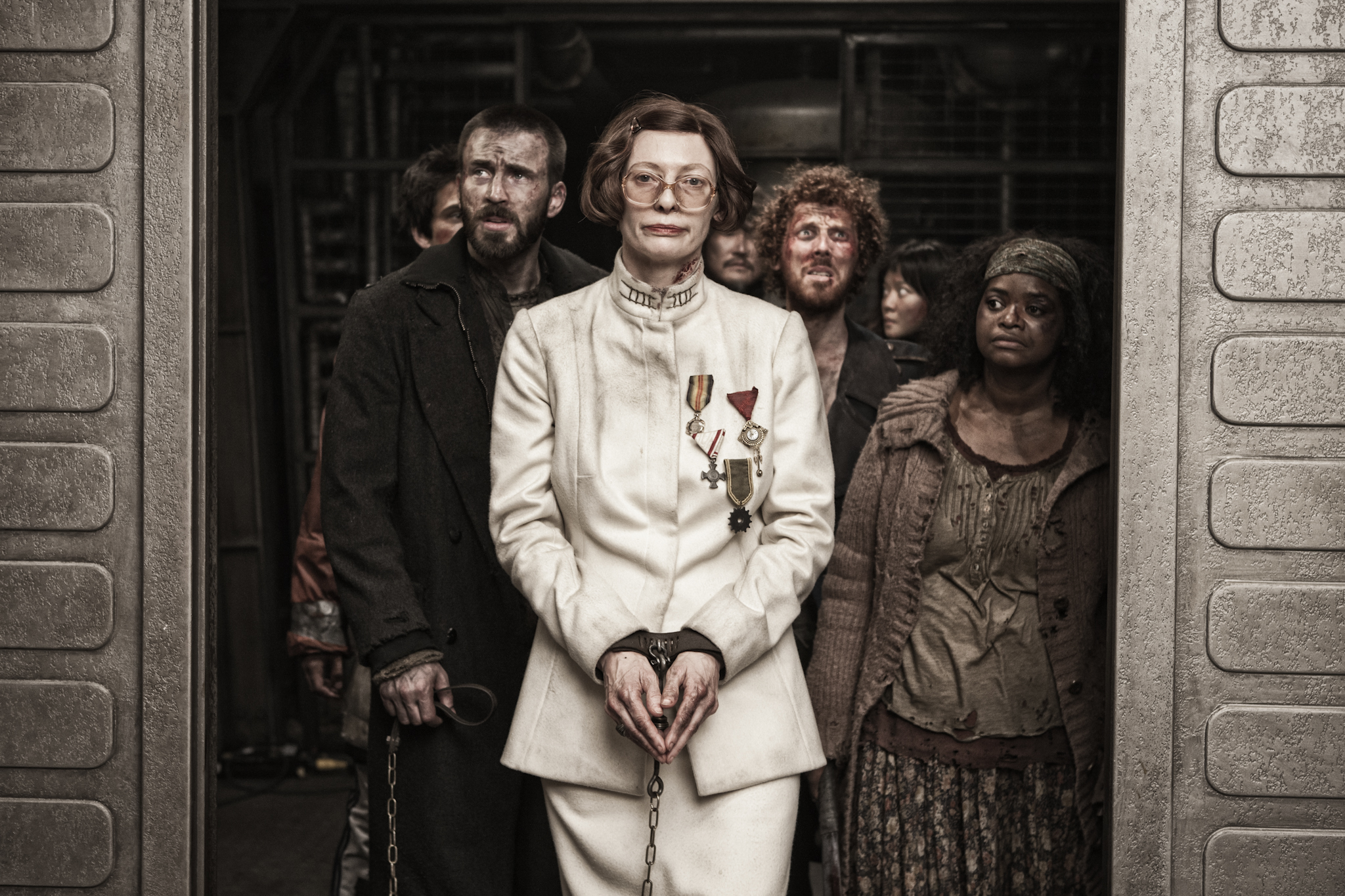Alfred Hitchcock called them the “plausibilists”—those nitpickers who can’t suspend disbelief long enough to swallow a movie’s colorful premise and just enjoy the thing. If you are a member of this army, you might have a problem with Snowpiercer. This futuristic picture has a whopper of a concept.
Let me state that I have no factual basis for believing that a train would be able to stay in continuous motion across a globe-girdling circuit of track for almost two decades, nor that the people on board could sustain themselves and their brutal caste system under such circumstances. But for 124 minutes of loco-motion, I had no problem buying it all. That’s because director Bong Joon-ho, making his first English-language film, has gone whole hog in imagining this self-contained universe. The train is going around the track because the world has been plunged into subzero temperatures, killing everything outside; the survivors are separated into different cars, with the have-nots in squalid conditions at the back of the train and the elites partying up front. The poor folk finally rebel—Captain America’s Chris Evans and Jamie Bell play their leaders—and stalk their way toward the godlike inventor of the supertrain, ensconced all the way up in the front. This heroic progress reveals food sources, a dance party, and some hilarious propaganda videos screened in a classroom. Each train car is a wacky surprise, fully designed and wittily detailed. The progression is a little like passing through the color-coded rooms of The Masque of the Red Death, but peopled by refugees from Orwell.
Those characters include a drug-addled security expert (Song Kang-ho, star of Bong’s spirited monster movie The Host), a grizzled veteran of the caboose (John Hurt), and the elite’s uptight spokesperson, played by Tilda Swinton as part Margaret Thatcher, part Tokyo Rose. (The train might not jump the tracks, but Swinton does, gloriously.) From each bar of gelatinous peasant-food—eccch—to the intricate workings of the train’s machinery, every inch of this film is delivered with such unapologetic verve that you probably won’t worry over bizarre shifts in tone or continuity issues. And the political allegory would be ham-handed indeed if it were being served up in a more serious context, but the film’s zany pulp approach means Bong can get away with the baldness of the metaphor. Who needs plausibility anyway?
Opens Fri., June 27 at SIFF Cinema Uptown. Rated R. 124 minutes.
film@seattleweekly.com







